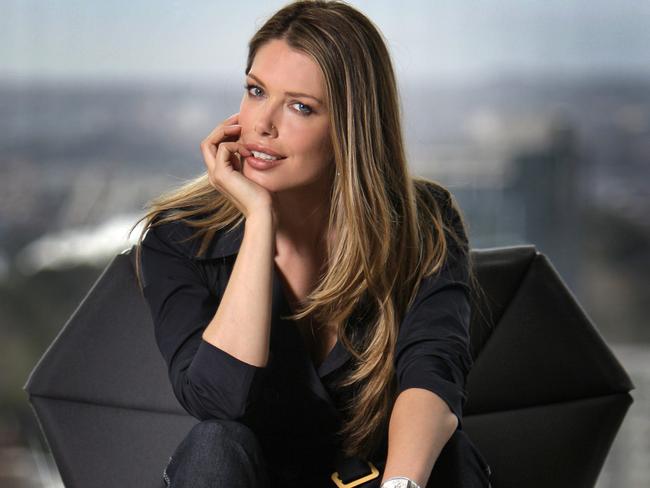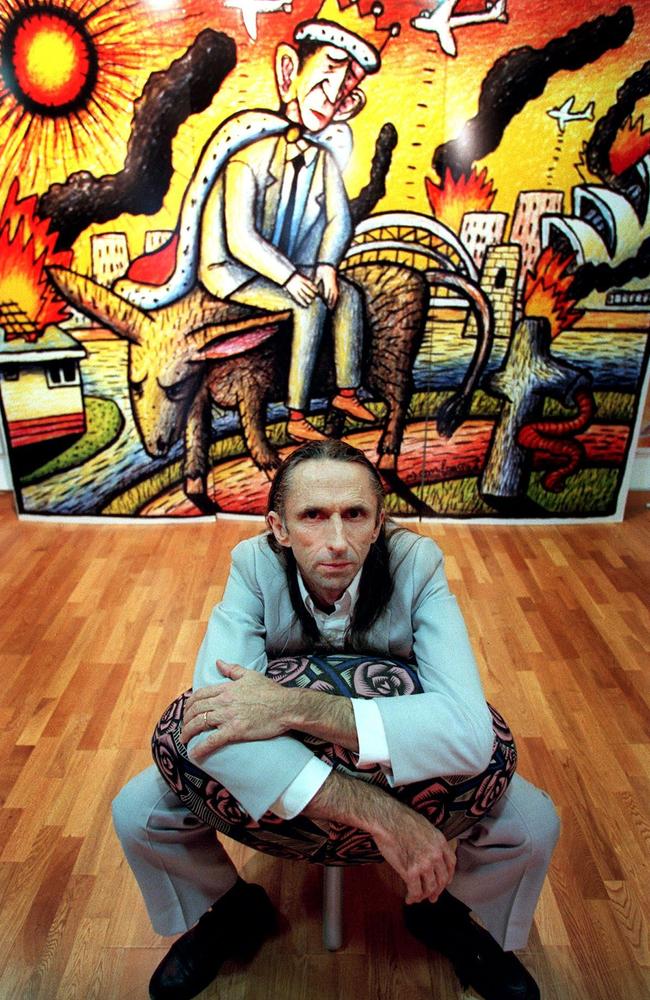Australian celebrities join the copyright war amid debate over ‘fair use’ provisions
A WAR over changing Australia’s copyright law is heating up with Tara Moss and Rove McManus among celebrities to enter the fiery debate.
A GROUP of Australian actors, artists, writers and musicians have launched a campaign to prevent changes to copyright laws which they say will hurt artists and stifle the country’s creative industries.
Author and TV personality Tara Moss, musician and Mambo artist Reg Mombassa and radio and TV personality Rove McManus are among the Australian celebrities who have lent their support to the campaign to oppose the introduction of a “fair use” doctrine in Australia’s copyright law.
They have been joined by the Copyright Agency and Australia’s music rights body APRA AMCOS to launch the campaign called This Book/Song Changed My Life.
The campaign is calling on people to share their favourite pieces of creative work on social media in a bid to highlight the importance of protecting artist’s intellectual property in the face of recommendations put forth by the government’s Productivity Commission to broaden the legal use of copyrighted material.
Australia currently has strict laws around the reuse of copyrighted material. In the US a “fair use” provision enshrined in the country’s copyright law allows companies to use copyrighted material to do things deemed to be in the public interest.
Instead of a “fair use” allowance, Australia has a “fair dealing” provision which only allows limited defences for the reuse of copyrighted material including research and study, criticism and review, parody and satire, and news reporting.
A number of past reviews have called for the easing of certain provisions, the latest of which is a review by the government’s Productivity Commission which released a draft report in April. The final report is currently with the government and is expected to be tabled in Parliament in February but the chief executive of the Copyright Agency, Adam Suckling, says its recommendations will hurt Australian artists.
“Changes to Australian copyright laws being pushed by the Productivity Commission together with some large organisations and big tech companies will see the protections that ensure Australian artists get paid for their work taken away,” he said.
“This is not just unfair, it is a threat to jobs of young Australians and means the next generation of Australian filmmakers, songwriters, artists and authors will not be able to make a living.”
Moss has been outspoken on behalf of the campaign and says the introduction of a fair use provision would mean Australian artists would regularly have to go to court to fight against unfair use of their work.
“Court battles are not something most authors can afford, and history tells us that a lot of this style of fair use benefits big companies the most, including tech companies, while smaller businesses and individuals, including writers, lose their rights to fair compensation,” she said.
Moss pointed to a recent case in the US in which Google won a decade-long legal battle against the Authors Guild, allowing the tech giant to digitise nearly 20 million books and make them available online as an example of how publisher rights would diminish.

Google only makes snippets of the books available online, does not display ads on the same page as the books and includes links to online stores where people can buy the author’s work. Such a project would not be possible under Australia’s copyright regime however was ultimately allowed due to the fair use provision in the US system.
Professor Nicolas Suzor from the law department of Queensland University of Technology believes a fair use doctrine in Australian copyright law would help facilitate creativity and drive similar innovative projects. As a result, he welcomes the proposed changes.
“Overall there’s something really strange going on here, because in other countries, particularly in the US we see that fair use is actually a vital part of the creative process” he told news.com.au.
“We have experience with a lot of creatives who find it very difficult to get the rights that they need to create,” such as artists that want to incorporate a bit of existing material in their work.
“Creatives are scared,” he said. “In the transition to the digital economy people have had to change business models and people are really worried about copyright infringement and something really strange has happened; we’ve started to confuse fair use with pirates,” he said.
“Fair use is not about piracy, fair use is about taking bits of material that don’t really interfere with the intended marketing of the copyright owner.”
Prof Suzor pointed to the well known example of Australian band Men at Work being sued and ordered to pay five per cent of their royalties for plagiarising part of their 1981 hit Down Under.
The high profile and controversial court case claimed the flute riff played by Greg Ham in the song was taken from iconic children’s song Kookaburra Sits in the Old Gum Tree, written by Melbourne teacher Marion Sinclair for a Girl Guides jamboree in 1934.
“That’s never going to interfere with the market for Kookaburra right, no one will walk into a record store looking for Kookaburra and walk out with Men at Work’s Down Under Album,” said Prof Suzor.
“It’s an example of where copyright law gets in the way of creativity.”
However Mr Suckling disagrees. As head of the non-profit organisation dedicated to protecting the income of copyright owners, he believes companies would be able to unfairly rip off the intellectual property of artists.
“You’re trying to balance these two things: the rights of the creator and the free flow of information. Where do you draw that line?”
He admits that in the digital age copyright laws need updating but warned the introduction of a fair use doctrine in Australia will be “weighted against” writers, publishers and artists and will too heavily favour big companies like Google and big education institutions.
Fair use in Australia would result in less money for Australia’s creative artists and force many into court.
“It’s a lawyers’ picnic,” he told news.com.au.
“In Canada for instance, there was a company like the Copyright Agency that used to collect money on behalf of writers when schools and universities would use their material and they introduced a version of fair use, it was a bit different to be fair, but the amount of money that they collected crashed by 98 per cent,” he said.
The government is expected to respond to the Productivity Commission’s report early next year.




